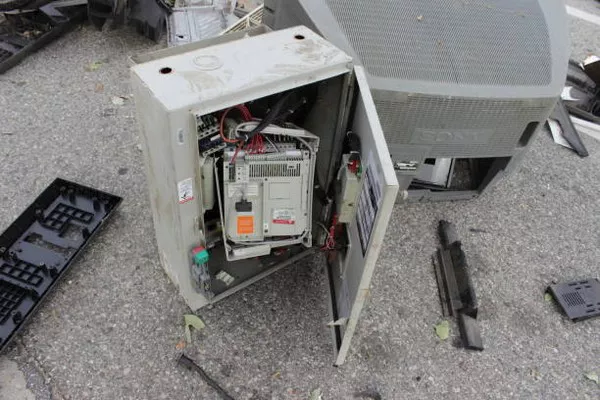In an increasingly connected world, uninterrupted power supply is crucial for various aspects of daily life, business operations, and critical infrastructure. However, power outages are inevitable, whether due to natural disasters, equipment failures, or other unforeseen circumstances. To ensure continuity during such events, emergency power generators play a vital role. This article delves into the workings of generators when the power grid fails, exploring the different types, their mechanisms, and their significance in maintaining power during outages.
Types of Generators
Emergency generators come in various types, each designed to cater to specific needs and scenarios. The two primary types are standby generators and portable generators.
Standby Generators:
Standby generators, also known as backup or whole-house generators, are permanently installed outside a facility or residence. They are designed to automatically start when a power outage is detected and can provide a seamless transition to backup power. These generators are typically fueled by natural gas, propane, or diesel and are connected directly to the electrical system, ensuring a continuous power supply during an outage.
Portable Generators:
Portable generators, on the other hand, are versatile units that can be moved to different locations as needed. They are commonly fueled by gasoline or propane and are manually started when power is lost. Portable generators are often used to power essential appliances, tools, or electronics during temporary outages or in remote locations.
How Generators Work
The basic principle behind generators involves the conversion of mechanical energy into electrical energy through the process of electromagnetic induction. Regardless of the type, generators share common elements in their operation:
Engine:
All generators are equipped with an internal combustion engine, which is responsible for converting fuel into mechanical energy. The engine can be powered by various fuels, such as gasoline, diesel, propane, or natural gas, depending on the type of generator.
Alternator:
The alternator, also known as the generator head, is a crucial component responsible for converting the mechanical energy generated by the engine into electrical energy. It consists of a rotor, a stator, and a magnetic field. As the engine drives the rotor, it creates a rotating magnetic field within the stator, inducing an electrical current.
Voltage Regulator:
To ensure a stable and reliable power supply, generators are equipped with voltage regulators. These devices control the output voltage by adjusting the electrical field within the alternator, preventing fluctuations that could damage connected appliances or equipment.
Automatic Transfer Switch (ATS) in Standby Generators
Standby generators are especially designed for seamless integration into existing electrical systems. One key component that facilitates this integration is the Automatic Transfer Switch (ATS). The ATS monitors the power supply from the utility grid and detects any interruption. When a power outage is detected, the ATS signals the generator to start automatically.
The generator then goes through a startup sequence, bringing the engine to operational speed. Once the generator is ready, the ATS switches the electrical load from the grid to the generator, ensuring a smooth transition from utility power to backup power. When the utility power is restored, the ATS switches the load back to the grid and commands the generator to shut down.
Fuel Sources for Generators
Generators can be fueled by various sources, each with its advantages and considerations. The most common fuel types are:
Gasoline: Portable generators often run on gasoline due to its widespread availability and convenience. However, gasoline has a limited shelf life and may not be the best choice for long-term backup power solutions.
Diesel: Diesel generators are known for their fuel efficiency and durability. They are commonly used in standby generators for larger facilities or critical infrastructure. Diesel fuel is less volatile than gasoline and has a longer shelf life.
Propane and Natural Gas: Propane and natural gas generators are popular choices for standby generators. They offer cleaner burning and are often preferred for their lower emissions. Additionally, these fuels can be supplied through existing utility lines, ensuring a constant source of fuel.
Significance of Emergency Power Generators
The importance of emergency power generators cannot be overstated, as they serve critical functions during power outages. Here are some key areas where generators play a crucial role:
Residential Applications:
In homes, standby generators ensure the continuous operation of essential appliances such as refrigerators, heating or cooling systems, medical equipment, and lighting. This is par
ticularly important for households with elderly individuals, young children, or individuals with medical conditions that rely on powered devices.
Commercial and Industrial Use:
Businesses and industries heavily depend on a stable power supply for uninterrupted operations. Standby generators are often integrated into business continuity plans to ensure that critical processes, data centers, and communication systems remain operational during power outages.
Healthcare Facilities:
Hospitals and healthcare facilities rely on generators to maintain power for life-saving equipment, lighting, and climate control. This is vital for patient care, surgeries, and the operation of medical devices.
Emergency Services:
Emergency services, such as fire stations, police stations, and emergency response centers, require continuous power to respond effectively during crises. Generators ensure that communication systems, emergency lighting, and essential equipment remain functional.
See Also How Generators Produce Electricity
Conclusion
In conclusion, emergency power generators are indispensable when the regular power supply is disrupted. Understanding how generators work and their different types provides valuable insights into their significance in various sectors. Whether it’s ensuring the comfort and safety of households or maintaining critical operations in businesses and infrastructure, generators play a pivotal role in mitigating the impact of power outages. As technology continues to advance, the development of more efficient and sustainable generator solutions will contribute to a more resilient and reliable power infrastructure for the future.

